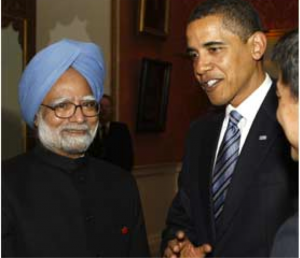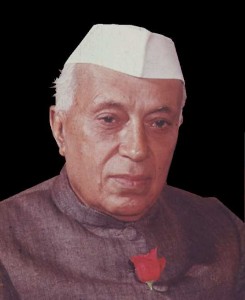Humility-The Hallmark of a Great Human Being
Gandhi dressed to be accepted by the poorest person in India, advocating the use of homespun cloth (khadi). He and his followers adopted the practice of weaving their own cloth. President of the United States Barack Obama in an address to a Joint Session of the Parliament of India said that:”I am mindful that I might not be standing before you today, as President of the United States, had it not been for Gandhi and the message he shared with America and the world.”
Lessons from the Life of Mahathma Gandhi
The fuller the ear of the rice grain, the lower it bends; empty of grain it grows taller and taller – Anonymous-Malay Proverb-Humility
The meek shall inherit the earth
It has been said in the Bible that the meek will inherit the earth. The greater the man, the more humble he is. It has also been said that empty vessels make the biggest
noise whereas a full vessel remains quiet. In Sri Lankan society we have observed many persons who have been making loud noises fading away one by one into oblivion as time passes whereas many great Sri Lankans who have rendered yeoman service to our nation silently will remain in the hearts of the Sri Lankans forever. Mohandas Karamchand Gandhi (2 October 1869 – 30 January 1948).or Gandhiji, as he is respectfully referred to was the pre-eminent ideological leader of India during the Indian independence movement. Gandhi is often referred to as Mahatma; (Sanskrit for “Great Soul, an honorific first applied to him by Rabindranath Tagore.
Jain traditions
Mohandas Karamchand Gandh was born on 2 October 1869 in Porbandar a coastal town which was then part of the Bombay British India He was born in his ancestral home, now known as Kirti Mandir Porbandar His father, Karamchand Gandhi (1822–1885), who belonged to the Hindu Modh community, served as the diwan (a high official) of Porbandar State., a small princely state in British India. His grandfather was Uttamchand Gandhi, fondly called Utta Gandhi. His mother, was Putlibai, Growing up with a devout mother and the Jain traditions of the region, the young Mohandas absorbed early the influences that would play an important role in his adult life; these included compassion for sentient beings, vegetarianism, fasting for self-purification, and mutual tolerance among individuals of different creeds.
Legal training
In 1888, Gandhi travelled to London, England, to study law at the University College-London, where he studied Indian law and jurisprudence and to train as a barrister at the Inner Temple. His time in the Imperial capital, was influenced by a vow he had made to his mother in the presence of the Jain monk Becharji, upon leaving India, to observe the Hindu precepts of abstinence from meat, alcohol, and promiscuity. Although Gandhi experimented with adopting “English” customs—taking dancing lessons for example—he could not stomach the bland vegetarian food offered by his landlady, and he was always hungry until he found one of London’s few vegetarian restaurants.
Influenced by Henry Salt’s book, he joined theVegetarian Society and, was elected to its executive committee, and started a local Bayswater chapter. Some of the vegetarians he met were members of the Theosophical Society which had been founded in 1875 to further universal brotherhood, and which was devoted to the study of Buddhist and Hindu literature. They encouraged Gandhi to join them in reading the Bhagvad Githa both in translation as well as in the original.Not having shown interest in religion before, he became interested in religious thought and began to read up on it.
Struggle in South Africa
Gandhi first employed non-violent civil disobedience as an expatriate lawyer in South Africa, in the resident Indian community’s struggle for civil rights. After his
return to India in 1915, he set about organising peasants, farmers, and urban labourers in protesting excessive land-tax and discrimination. Assuming leadership of the Indian National Congress in 1921, Gandhi led nationwide campaigns for easing poverty, expanding women’s rights, building religious and ethnic amity, ending untouchability increasing economic self-reliance, but above all for achieving Swaraj—the independence of India from foreign domination. Gandhi famously led Indians in protesting the British-imposed salt tax with the 400 km (250 mi)Dandi Salt March in 1930, and later in calling for the British to Quir India in 1942. He was imprisoned for many years, upon many occasions, in both South Africa and India. Gandhi strove to practice non-violence and truth in all situations, and advocated that others do the same. He lived modestly in a self sufficient residential community and wore the traditional Indian dhoti and shawl, woven with yarn he had hand spun on a charkha He ate simple vegetarian food, and also undertook long fasts as means of both self-purification and social protest.
Darkness everywhere
Pioneering the use of non- violent resistance to tyranny through mass civil disobedience a tool to fight for civil rights and freedom that he called satyagraha he founded his doctrine of nonviolent protest to achieve political and social progress based upon ahimsa or total nion-violence for which he is internationally renowned. Gandhi led India to her independence and inspired movements for civil rights and freedom across the world.In India, he is also called Bapu Gujarati bāpu or “Father”) and officially honoured as the Father of the Nation. His birthday, 2 October, is commemorated in India as The Gandhi Jayanthi, a national holiday, and worldwide as the International Day of Non- Violence. Gandhi was assassinated on 30 January 1948, by Nathuram Godse, a Hindu nationalist who felt Gandhi was sympathetic to the Muslims. January 30, hence is observed as Martyr’s Day in India.
Jawaharlal Nehru addressing the Indian Nation on the death of Gandhi said “Friends and comrades, the light has gone out of our lives, and there is darkness everywhere, and I do not quite know what to tell you or how to say it. Our beloved leader, Bapu as we called him, the father of the nation, is no more. Perhaps I am wrong to say that; nevertheless, we will not see him again, as we have seen him for these many years, we will not run to him for advice or seek solace from him, and that is a terrible blow, not only for me, but for millions and millions in this country.”
Gandhis death was mourned nationwide. Over 2 million people joined the 5 mile long funeral procession that took over 5 hours to reach Raj Ghat from Birla house, were he was assassinated. Gandhi’s body was transported on a weapons carrier, whose chassis was dismantled overnight to allow a high-floor to be installed so that people could catch a glimpse of his body. The engine of the vehicle was not used, instead 4 drag-ropes manned by 50 people each pulled the vehicle All Indian owned establishments in London remained closed in mourning as Indians from all over Britain converged at India House in London.
No barbarity, no insolence
Gandhi’s ethical thinking was heavily influenced by a handful of books, which he repeatedly meditated upon. They included especially Plato’s Apology (which he translated into his native Gujarati); William Salter’s Ethical Religion (1889); Henry David Thoreau’s On the Duty of Civil Disobedience (1847); Leo Tolstoy’s The Kingdom of God is Within You (1893) (in which he first discovered the doctrine of non-violence and love); and John Ruskin’s Unto this Last(1862), which he also translated into Gujarati . Ruskin inspired his decision to live an austere life on a commune, at first on the Phoenix Farm in Natal and then on the Tolstoy Farm just outside Johannesburg, South Africa. Gokhale argues that Gandhi took his philosophy of history from Hinduism and Jainism, supplemented by selected Christian

"President of the United States Barack Obama in an address to a Joint Session of the Parliament of India said that:"I am mindful that I might not be standing before you today, as President of the United States, had it not been for Gandhi and the message he shared with America and the world."" Photo shows President Obama with India's Prime Minister Manmohan Singh
traditions and ideas of Tolstoy and Ruskin. Hinduism provided central concepts of God’s role in history, of man as the battleground of forces of virtue and sin, and of the potential of love as an historical force. From Jainism, Gandhi took the idea of applying nonviolence to human situations and the theory that Absolute Reality can be comprehended only relatively in human affairs. Gandiji wrote: “There must be no impatience, no barbarity, no insolence, no undue pressure. If we want to cultivate a true spirit of democracy, we cannot afford to be intolerant. Intolerance betrays want of faith in one’s cause.
Gandhi dressed to be accepted by the poorest person in India, advocating the use of homespun cloth (khadi). He and his followers adopted the practice of weaving their own cloth. President of the United States Barack Obama in an address to a Joint Session of the Parliament of India said that:”I am mindful that I might not be standing before you today, as President of the United States, had it not been for Gandhi and the message he shared with America and the world.”
It is impossible to trace the life of that great human being Gandhiji in a short article of this nature, but I have attempted to make a synopsis that may be useful to the readers especially the youth of our country, who appear to resort to violence to solve their disputes. Sons and daughters of our nation who are studying in our Universities, should never be motivated by violence in resolving their disputes and not fall into the clutches and evil machinations of disgruntled political elements that may lead to misery and disaster.
The writer is an Attorney-at-Law


